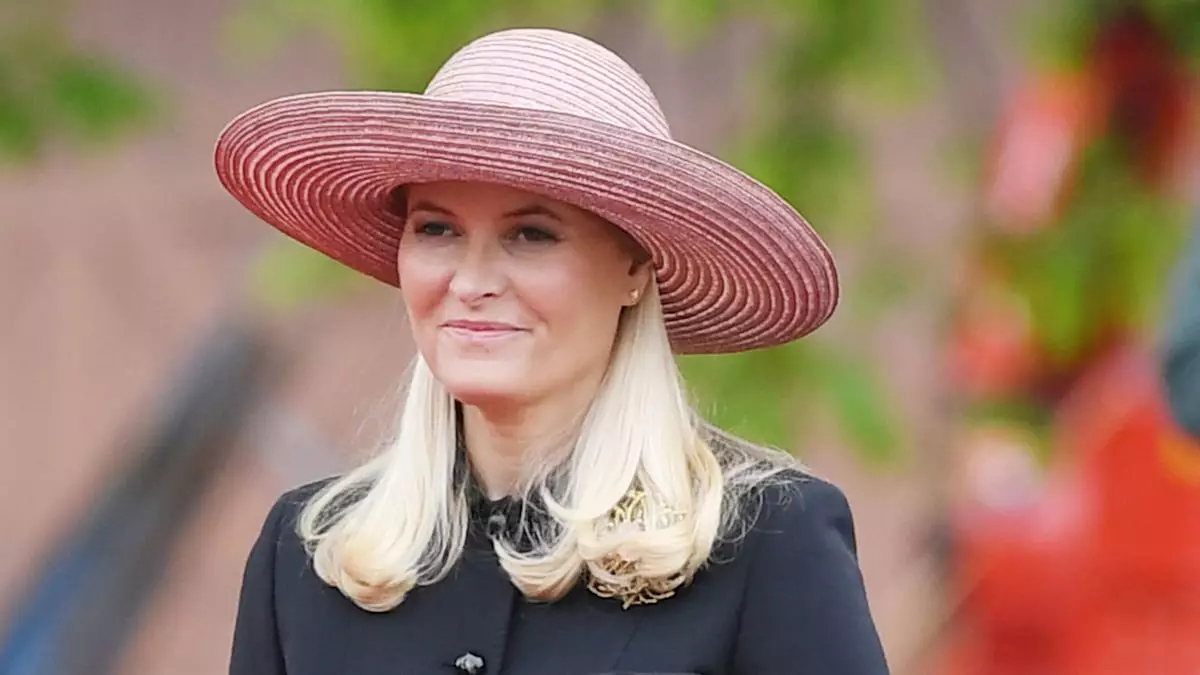Crown Princess Mette-Marit of Norway has recently extended her sick leave as announced by the Norwegian royal palace. This news comes in the wake of her ongoing battle with pulmonary fibrosis—a chronic and debilitating condition diagnosed in 2018 that progressively damages the lung tissue. The royal family has been open about the challenges associated with Mette-Marit’s health, shedding light on how it impacts not only her but also the broader royal duties and engagements.
Initially placed on sick leave on October 23, following an intensive treatment regimen, Mette-Marit’s recovery has faced setbacks due to the side effects of her medication. The palace confirmed that her leave will now stretch until at least November 5, during which time numerous scheduled public appearances will be either canceled or postponed. The Crown Princess was last seen in public on October 21, when she celebrated an important milestone: the 25th anniversary of the Nordic countries’ joint embassy facility in Berlin alongside her husband, Crown Prince Haakon.
While health concerns loom over the royal household, the situation is further complicated by personal issues within the family. Mette-Marit’s son, Marius Borg Høiby, has recently faced scrutiny following troubling incidents that escalated into a police matter. Notably, he admitted to an assault against his girlfriend and encountered legal repercussions stemming from a drunken party at Mette-Marit and Haakon’s residence, Skaugum. This situation not only raises questions about the family dynamics but also casts a shadow over Mette-Marit’s efforts to navigate her health challenges amidst familial challenges.
King Harald V’s Reflection on Family Challenges
Adding to the narrative of adversity, King Harald V, the grandson of the late King Olav V and a monarch who has remained a constant in Norway’s royal landscape since 1991, has recently spoken out about the difficult year the royal family has endured. Addressing the Storting, Norway’s Parliament, he remarked upon the complexities of being both a royal family performing public duties and a close-knit family coping with personal trials.
He reflected, “The royal family is a team that works well together. And then we are a family— with the joys and challenges that we all know can come with it.” His words resonated deeply, presenting a transparent glimpse into the reality of the royal family’s private struggles. He also expressed gratitude for the warmth and support they have received from the public during such testing times.
Having confronted serious health issues himself, including hospitalization during a vacation and the placement of a pacemaker, King Harald’s experiences are personal. His acknowledgment of life’s inherent difficulties serves not just as a commentary on royal duty but broadens to a universal sentiment on the human experience: that challenges, both psychological and physical, are something everyone faces, regardless of status.
A Path Forward: Balancing Duty and Family
With these concurrent challenges—a lingering health crisis for Mette-Marit compounded by familial and legal troubles—Norwegian society watches closely. There exists a public allure to the perceived glamour of royalty, yet it is critical to remember that beneath the surface, these figures grapple with their realities much like any other family. The need for compassion and understanding is paramount, especially as the royal family navigates the complexities of mental and emotional health alongside their traditional roles.
Both the Crown Princess and her family will have to recalibrate and carve out a path forward, balancing public duties with personal well-being. Such scenarios beg the question: what does resilience really look like in the age of accessible information and public scrutiny? Just as King Harald noted, facing the trials of life, while difficult, also holds the potential for profound connection and community support.
In times of adversity, the spirit of Norwegians, standing by their royal family, becomes evident as they collectively navigate these turbulent waters. Whether it be through acts of solidarity or simply extending a listening ear, empathy can be the thread that binds both the palace and its public, reminding all that no one—from royalty to everyday citizens—is wholly immune to life’s unpredictable challenges.

